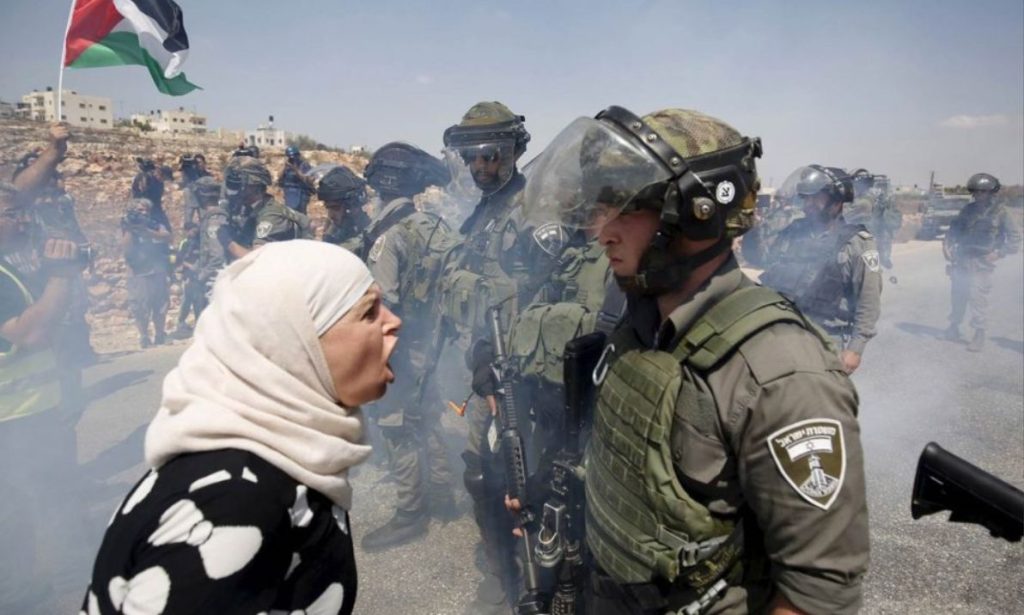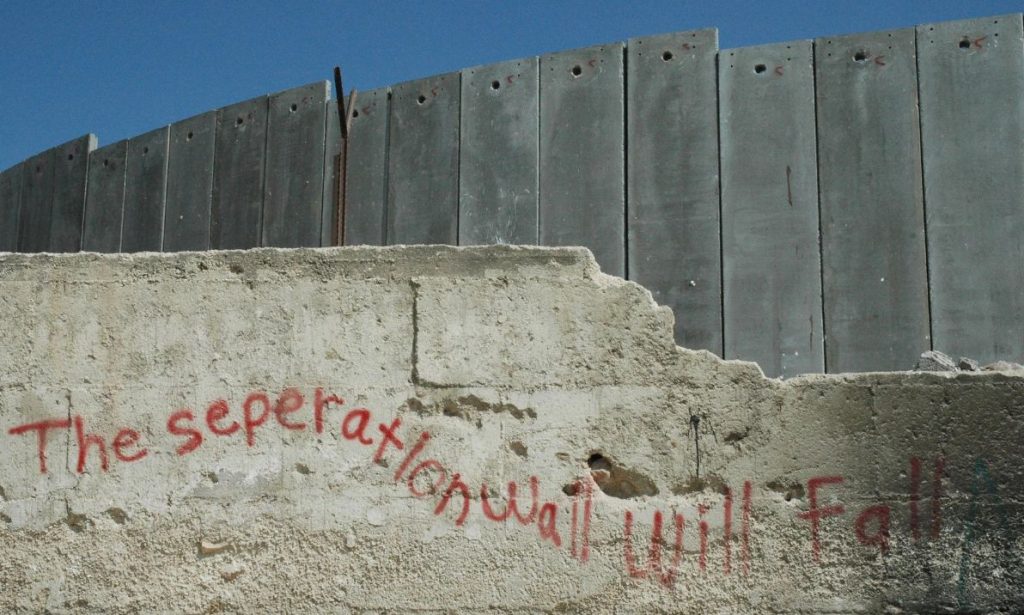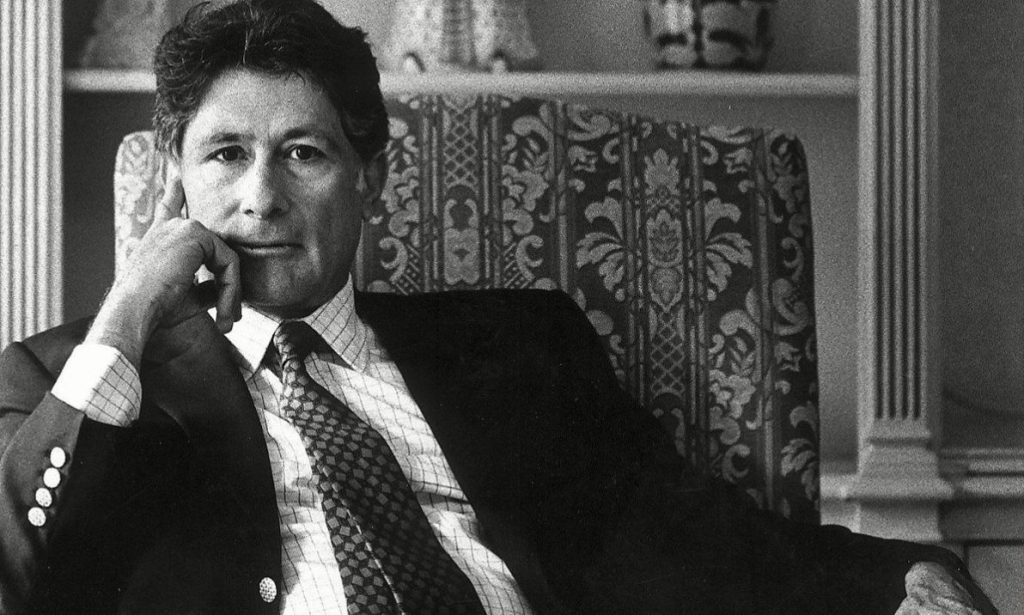Interviewing Academicians: The Role of Decolonization Studies In Palestine Resistance
On 7 October, when Hamas led the attack on Israel, a video of a middle-aged Palestinian man went viral. The man couldn’t control his tears the moment he stepped into the long-occupied Palestinian lands of Bersheeba crying ‘here is our occupied land, here it is, after 80 long years, it is Beersheba, oh it’s Beersheba”.
Morid Al Barghouty, the Palestinian poet and novelist wrote in his autobiography “I Saw Ramallah” about the first time he saw Ramallah after its fall in 1967:
‘Is this a political moment? Or an emotional one? Or social? A practical moment? A surreal one? A moment of the body? Or of the mind?’ He was at odds not knowing where to categorize the feelings accompanied with such a long-waited moment.
The footage of Palestinians celebrating near an Israeli tank, the cries of joy while they are on a mission from which it is possible won’t come alive. The situation of repressed aggression and extreme state of displacement is utterly psychological.
There is one, seemingly unpolitical question to ask amidst the chaos. If re-owning the land can be executed by “the” colonized people, then where do academic decolonization studies stand? Considering that post-colonial studies emerged in parallel to the Palestinian strife. The current events put theory under question.

After the Second World War. While countries were gaining independence in the early twentieth century, and the displacement of the Jewish people, Palestine was fighting its right to land.
To accomplish that, the article puts on its academic, theory-tolerant cloak to enter the serene alleys of academia asking the specialized professors about fresh definitions of the role of post-colonial studies, its impact, and how it is limited or politicized.
Doaa Embabi, Professor at the American University in Cairo defines said “Postcolonial studies as exercised in the Middle East have taken the Palestinian question as a point of departure and for exemplifying resistance…the direct impact of postcolonial studies is to keep the question of Palestine alive and to keep the different generations aware of the conflict. This awareness is the least we can do to keep the cause relevant.”
The seminal works of the renowned critic Edward Said, who is considered the precursor of Post Colonial Studies are of great relevance here. In his post-structural text, Orientalism 1978 challenges the representations of the Eastern world as something violent, fanatic, or exotic. This is relevant to the Palestinian resistance, especially in relation to the Western media agenda of misrepresenting Palestinians in compound adjectives like “barbaric terrorists”.
In Orientalism, he writes ““In newsreels or news-photos, the Arab is always shown in large numbers. No individuality, no personal characteristics or experiences. Most of the pictures represent mass rage and misery, or irrational (hence hopelessly eccentric) gestures. Lurking behind all of these images is the menace of jihad. Consequence: a fear that the Muslims (or Arabs) will take over the world.”
Although the book was published more than four decades ago, it is becoming increasingly relevant. The above quote mirrors the systematic representation of Palestinians where the Arabs, and Muslims mean the same thing and are stripped of individuality.
While Embabi defines it as a way of sustaining resistance, Faten Morsy, Professor of Comparative Literature at Ain Shams University sees it as an intended and active position taken by the academician.
“Decolonization [Studies] are not a metaphor; it is a position, a conscious position on the part of the educator…this position is then put into praxis with the aim of re-constructing knowledge in a way that is more inclusive of the diversity of students across social, class and cultural differences.” Says Faten Morsy, Professor of Comparative Literature at Ain Shams University.

While the Palestinian resistance now is embodied in the absolutely astonishing role of the Gazan people themselves holding their ground while thousands are martyred, post-colonial studies contribute indirectly “through the process of knowledge production and impacting the young ones who will impact others in turn.” Says Morsy. In other words, the Palestinian People are capable of reowning the land, and decolonization studies are capable of reowning the narrative.
In the same vein, Professor Embabi says that the duty of anyone teaching a course in Postcolonial studies is to incorporate live material on the current conflict, providing an open sphere to discuss the Palestinian-Israeli strife “It is important to train our students to detect bias, to learn to make informed decisions about the situation by having a critical mentality.”
However, according to both Embabi and Morsy, there is erosion of a post-colonial interest in Palestine, which they both describe as “systematic”. The suggestion that there might be a political interest in hindering the post-colonial approach is not a counter-argumentative to the fact that academia can be, and is in fact powerful. Resisting decolonization studies means it has the power to change.
“…In our universities, especially the last 10 years, there has been a systematic erosion of university life and students were prevented from practising their cultural or political rights.” Said Morsy
While Embabi Says “We cannot make sweeping generalizations. However, we cannot go out on a demonstration in the campus, for example, in support of Palestine, despite the fact that this was possible back in the 90s of the 20th century. I mean hear a protest/ march on campus to express the support of the academics. But I have to say that means of protest and resistance changed and evolved. Those who have a will certainly will find a way.”

“The question of Palestine is considered a taboo in our universities. Over the last decade or so, there have been implied warnings to avoid anything that has to do with Palestine and no tolerance whatsoever to any discussion of political issues, in general, and the Palestinian problem in particular.”
Amid the ongoing attacks to which more than 5,000 people have died, there is a pressing need to collectively document the events in a way that allows for the preservation of an honest depiction of what the Israel settler colonialism has done to Palestine. Postcolonial studies step in to give voice to the voiceless and write history from a non-Eurocentric perspective.
WE SAID THIS: Don’t Miss…Palestine’s Last Kufiya Factory Is Struggling, Here’s How You Can Help
